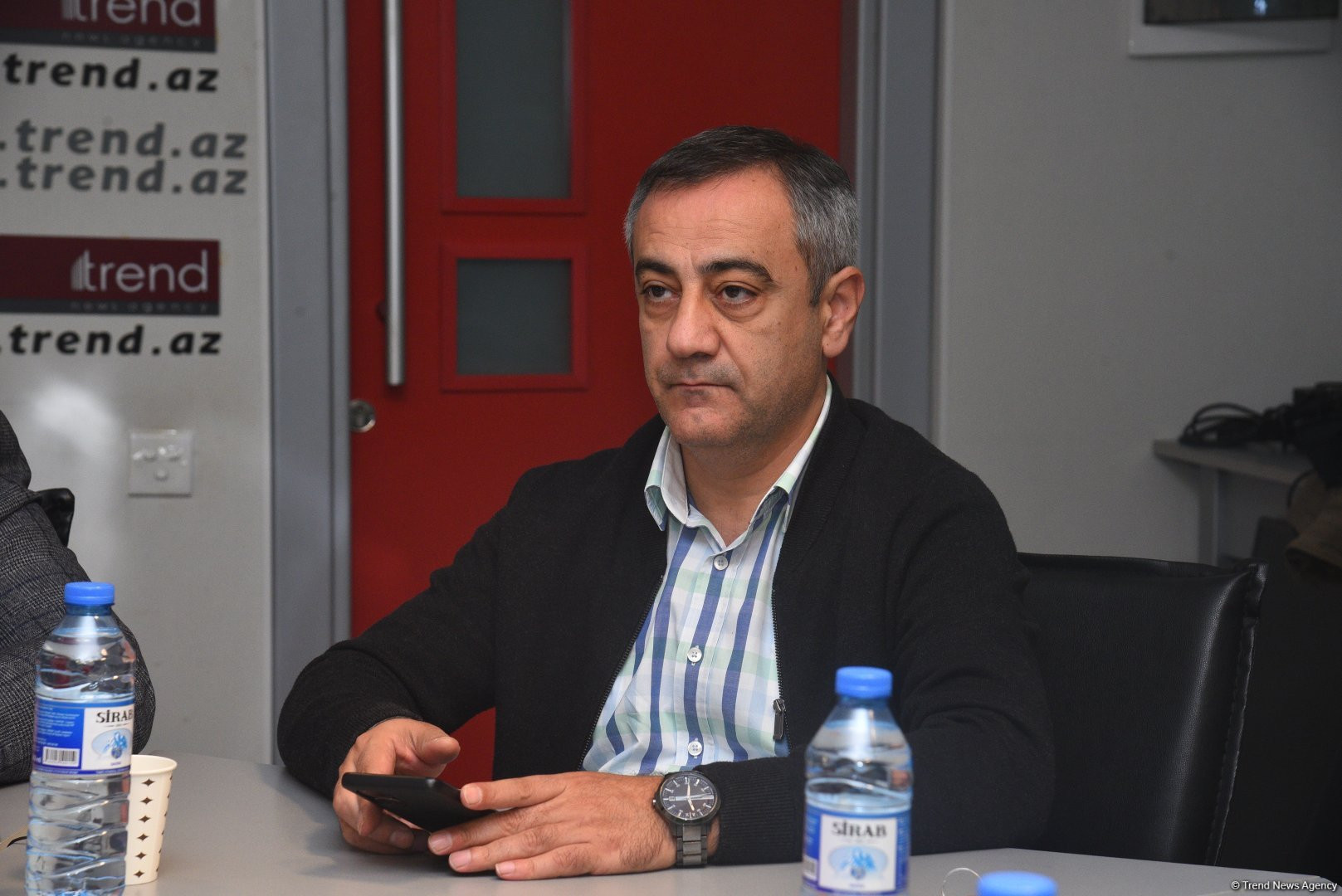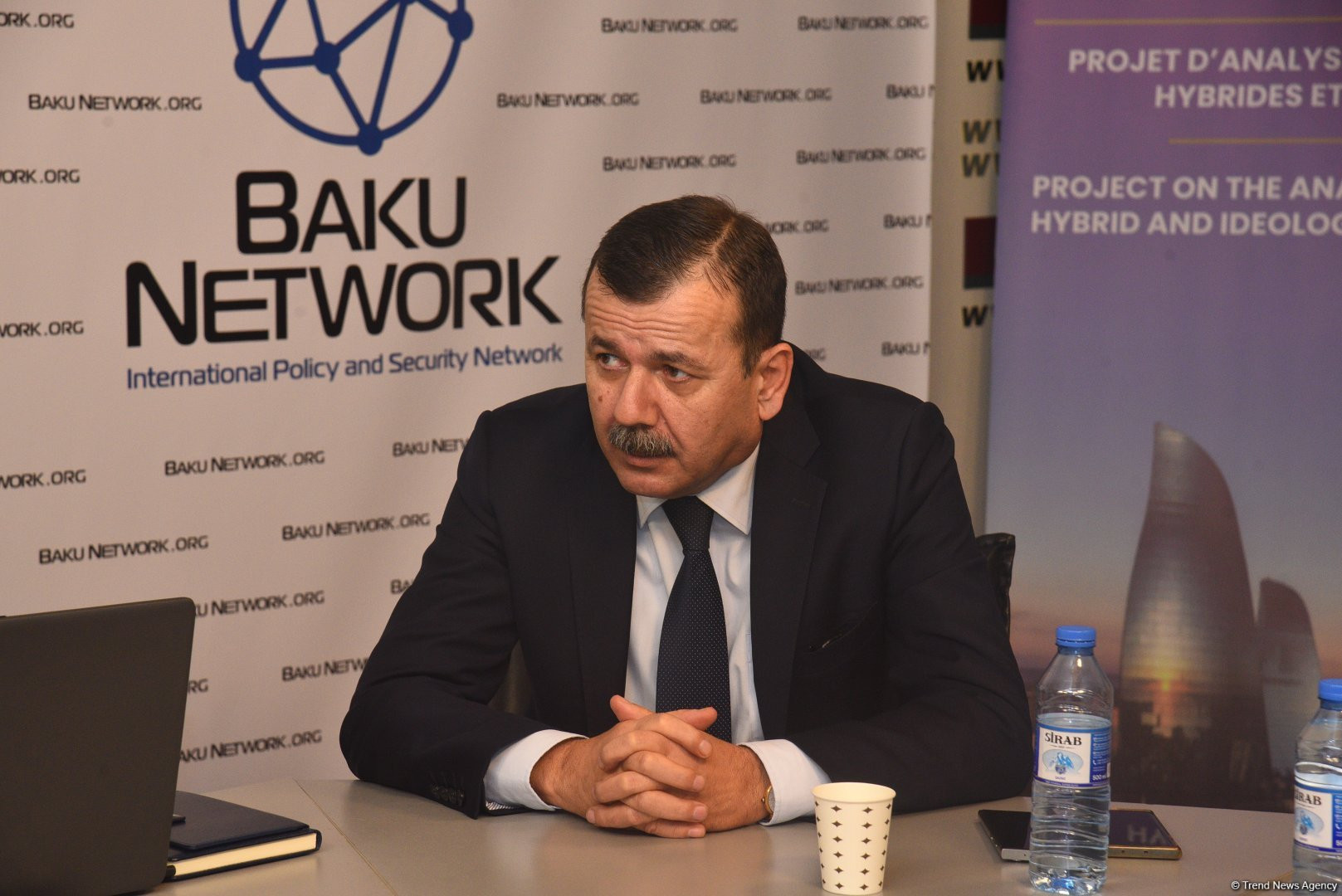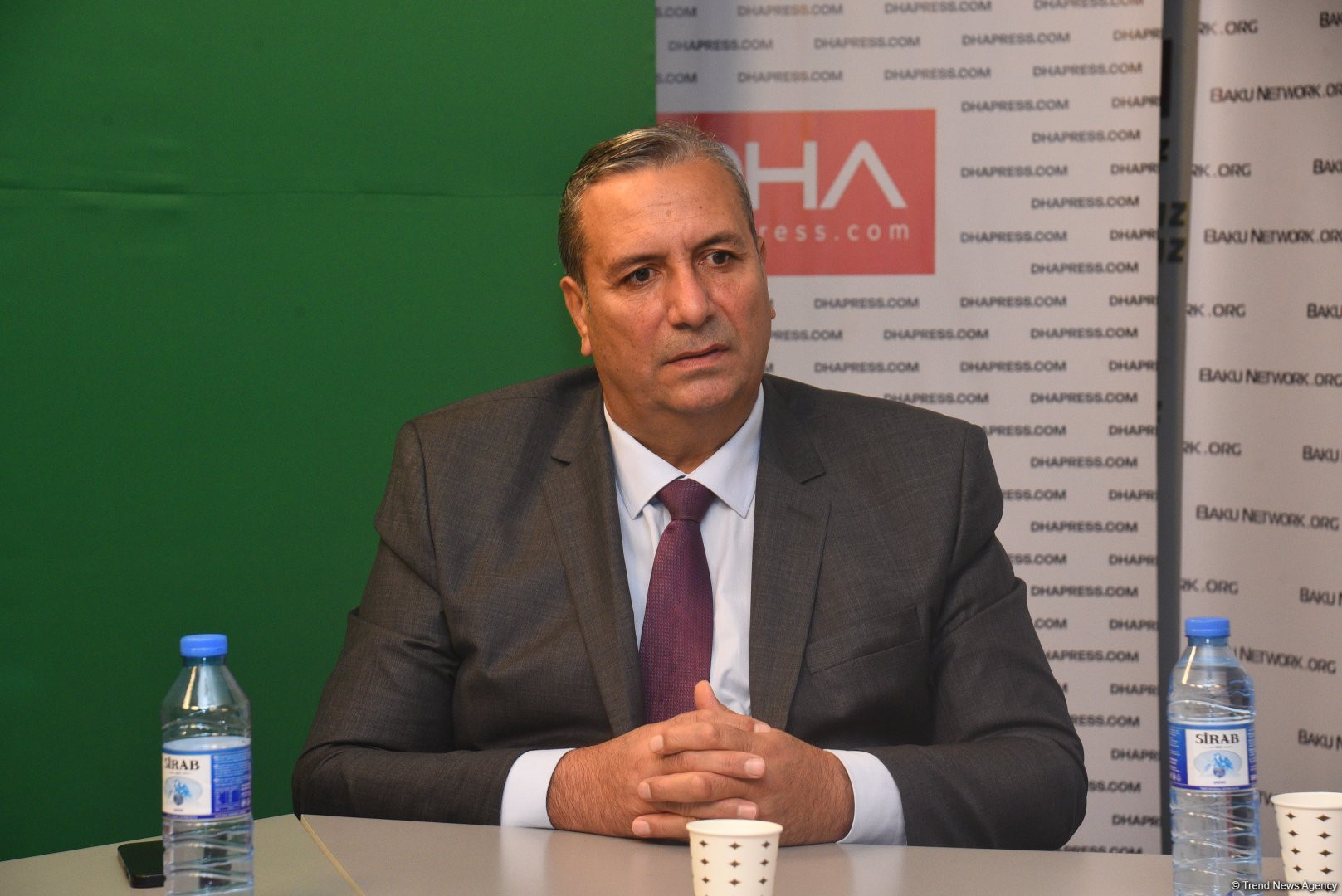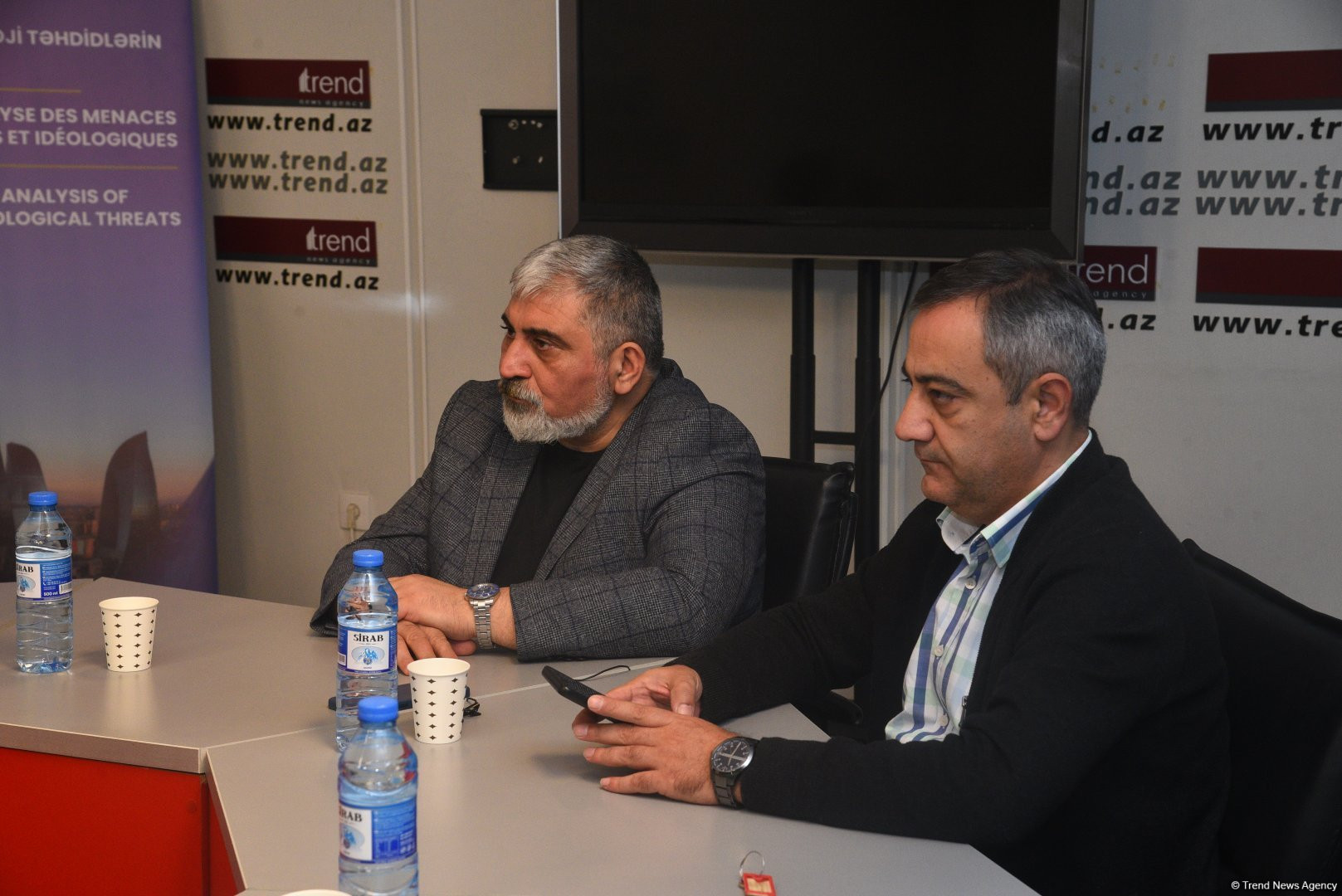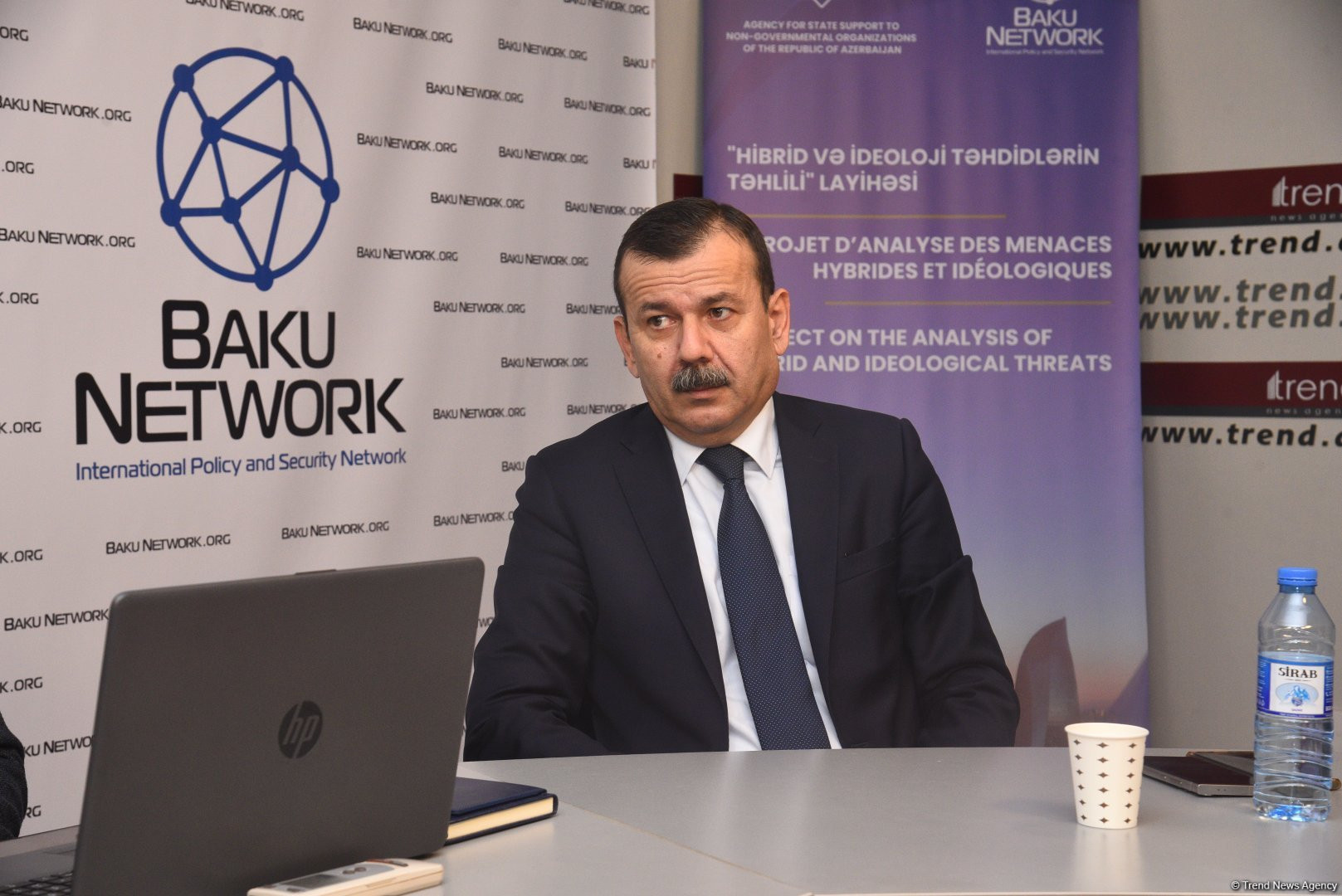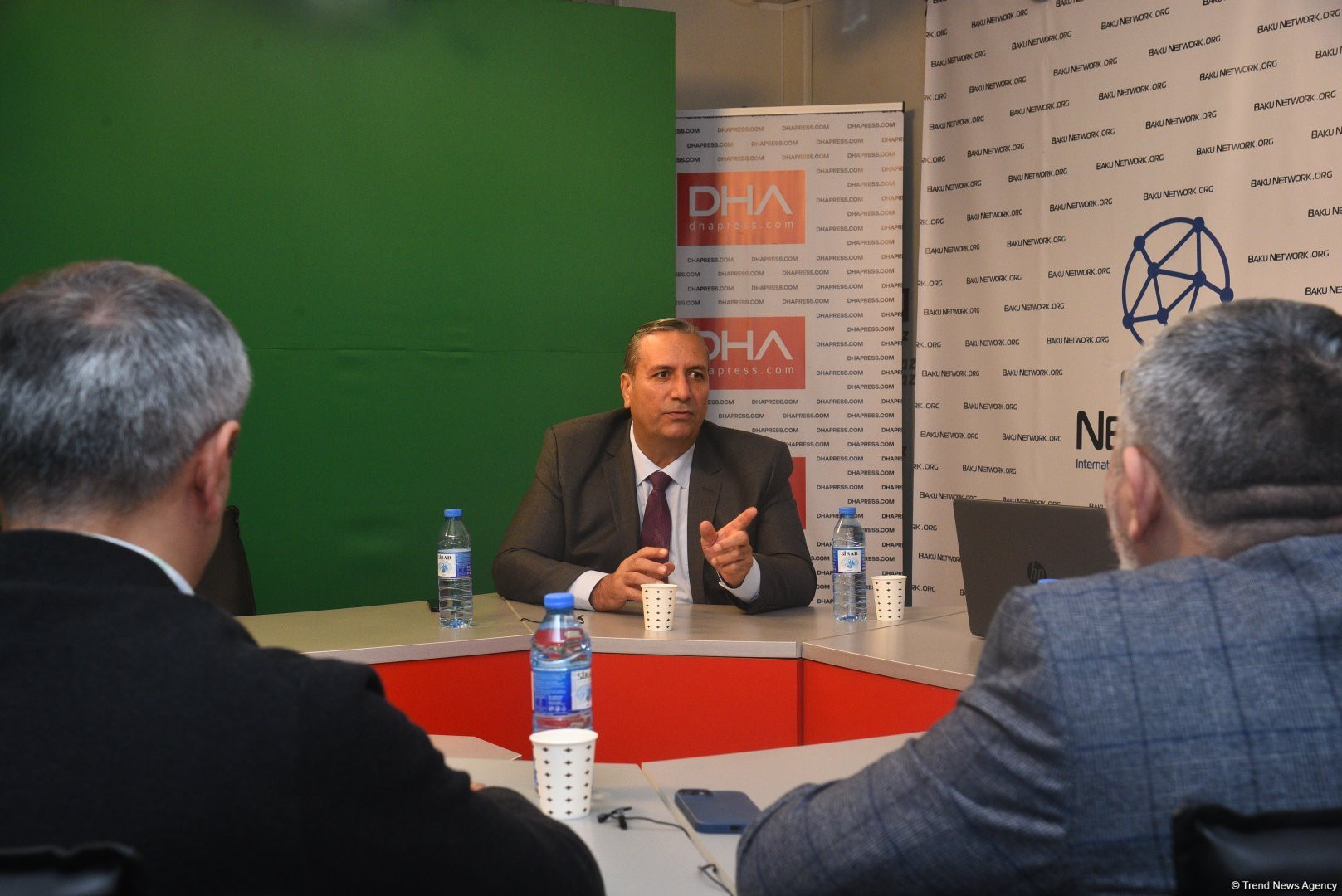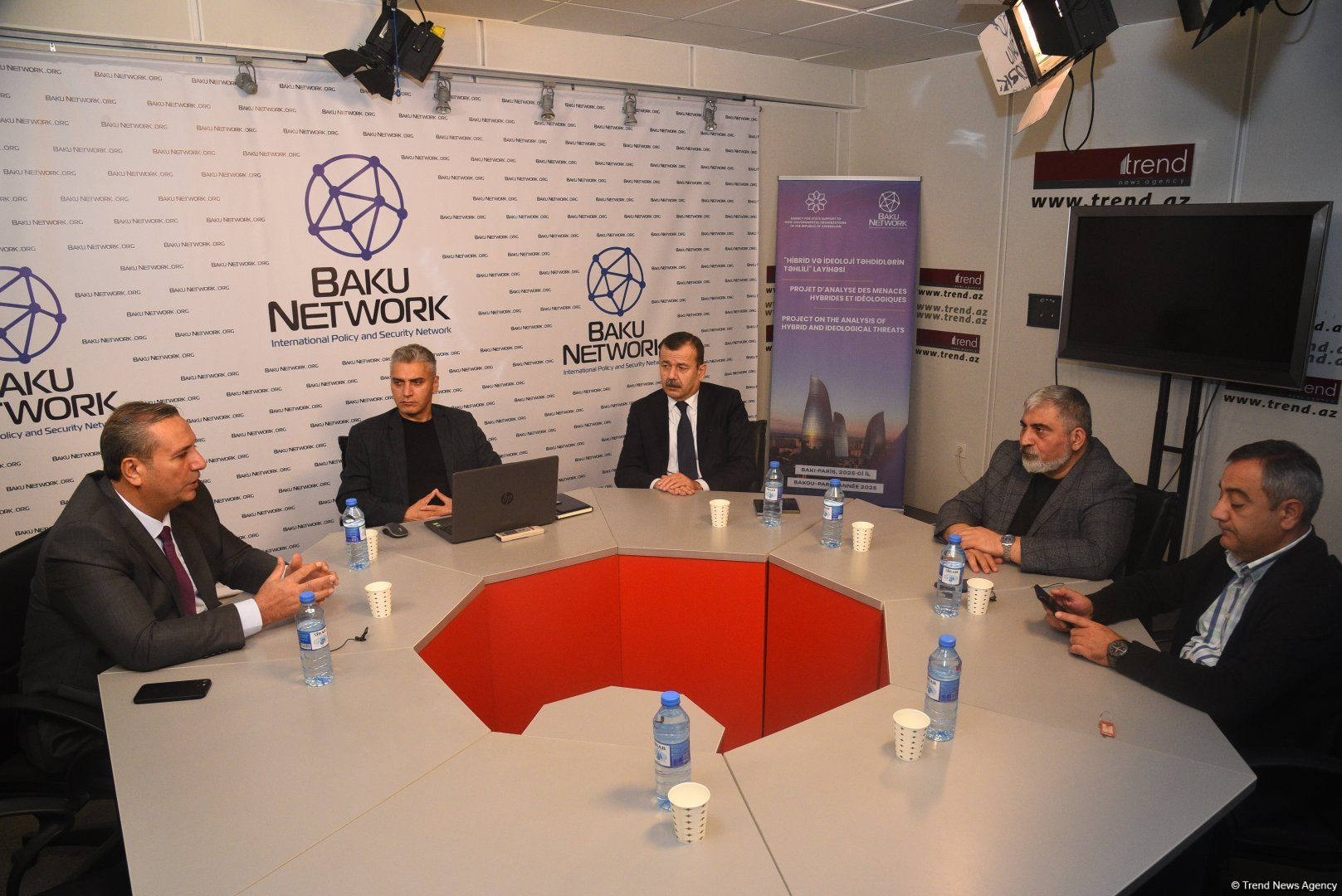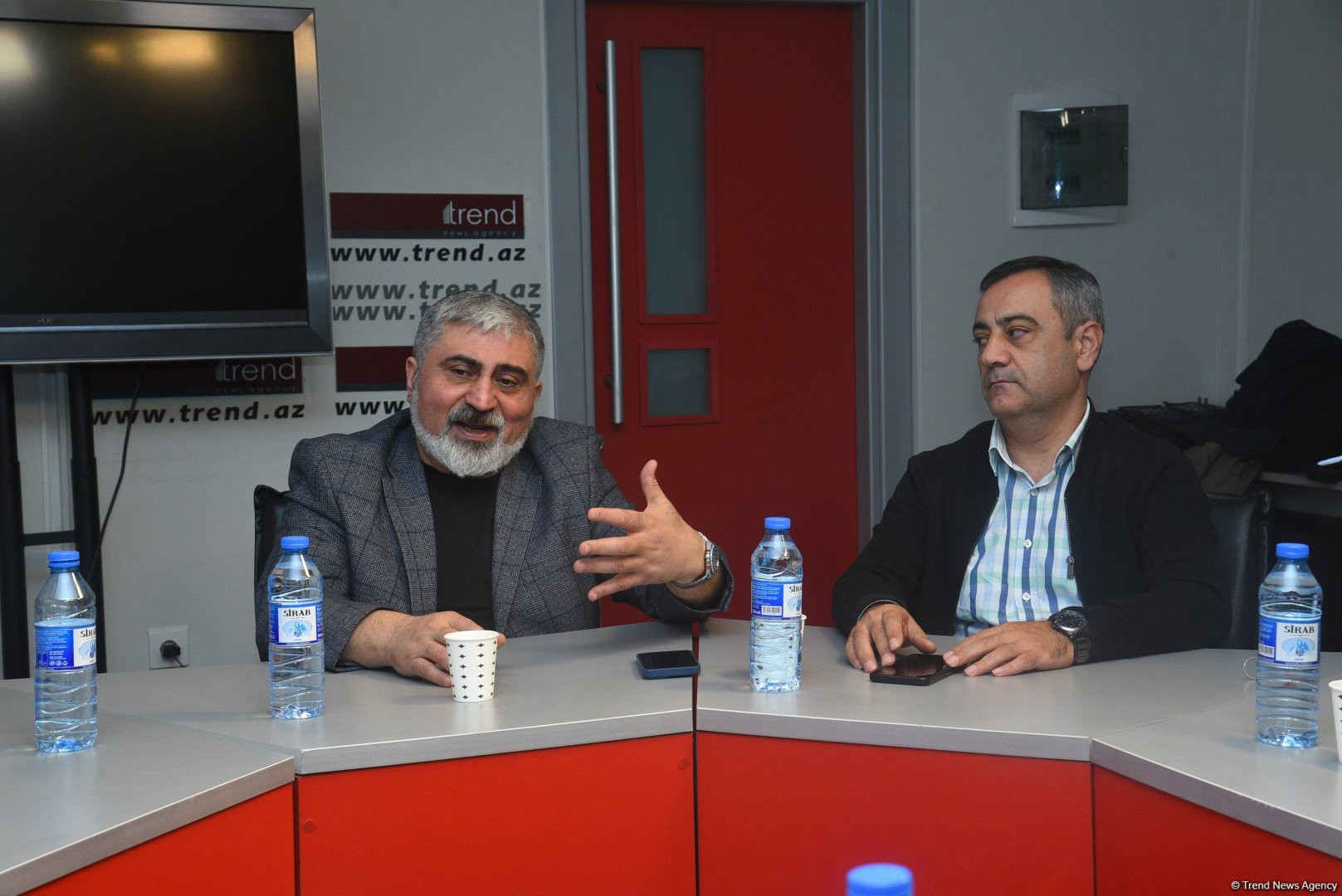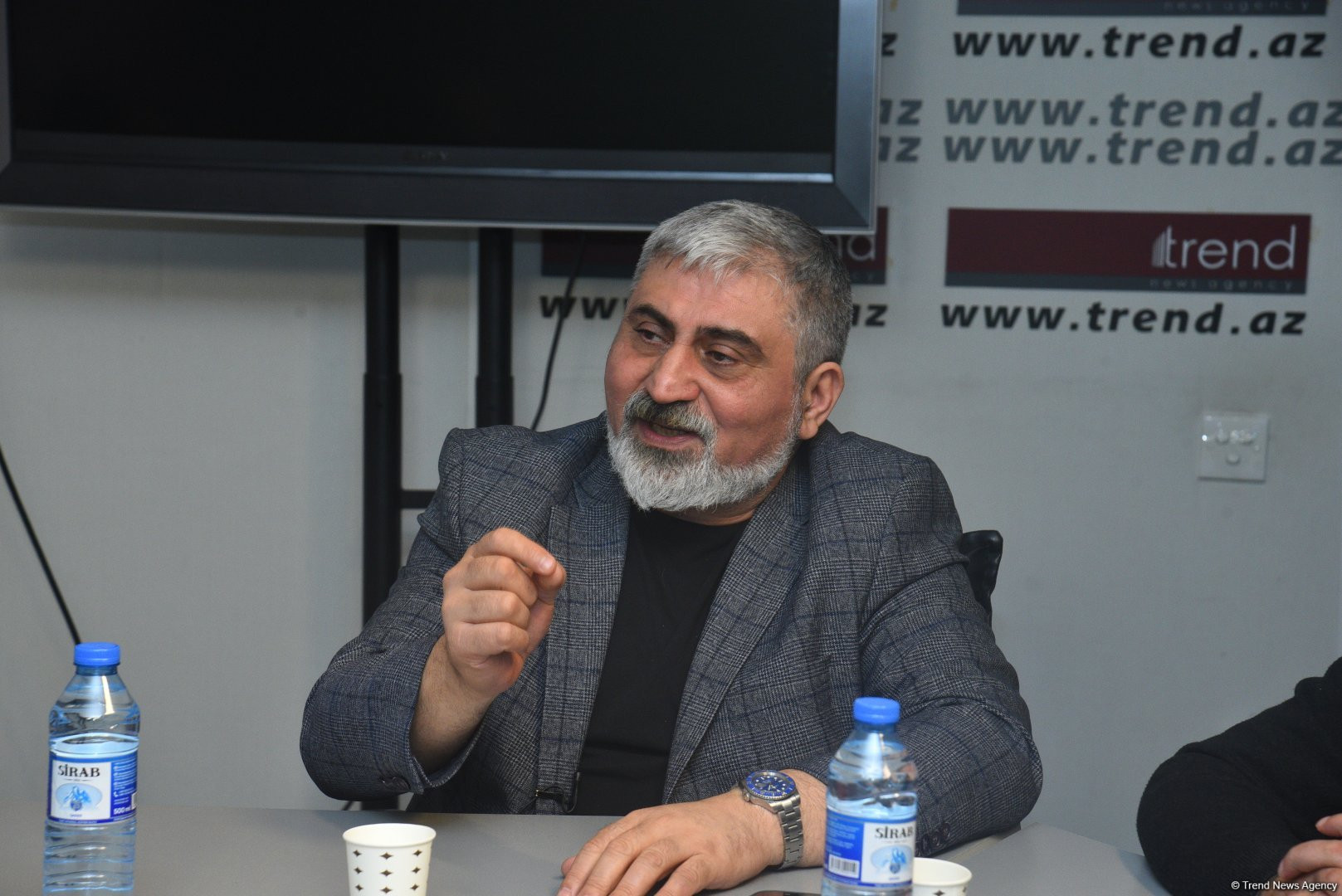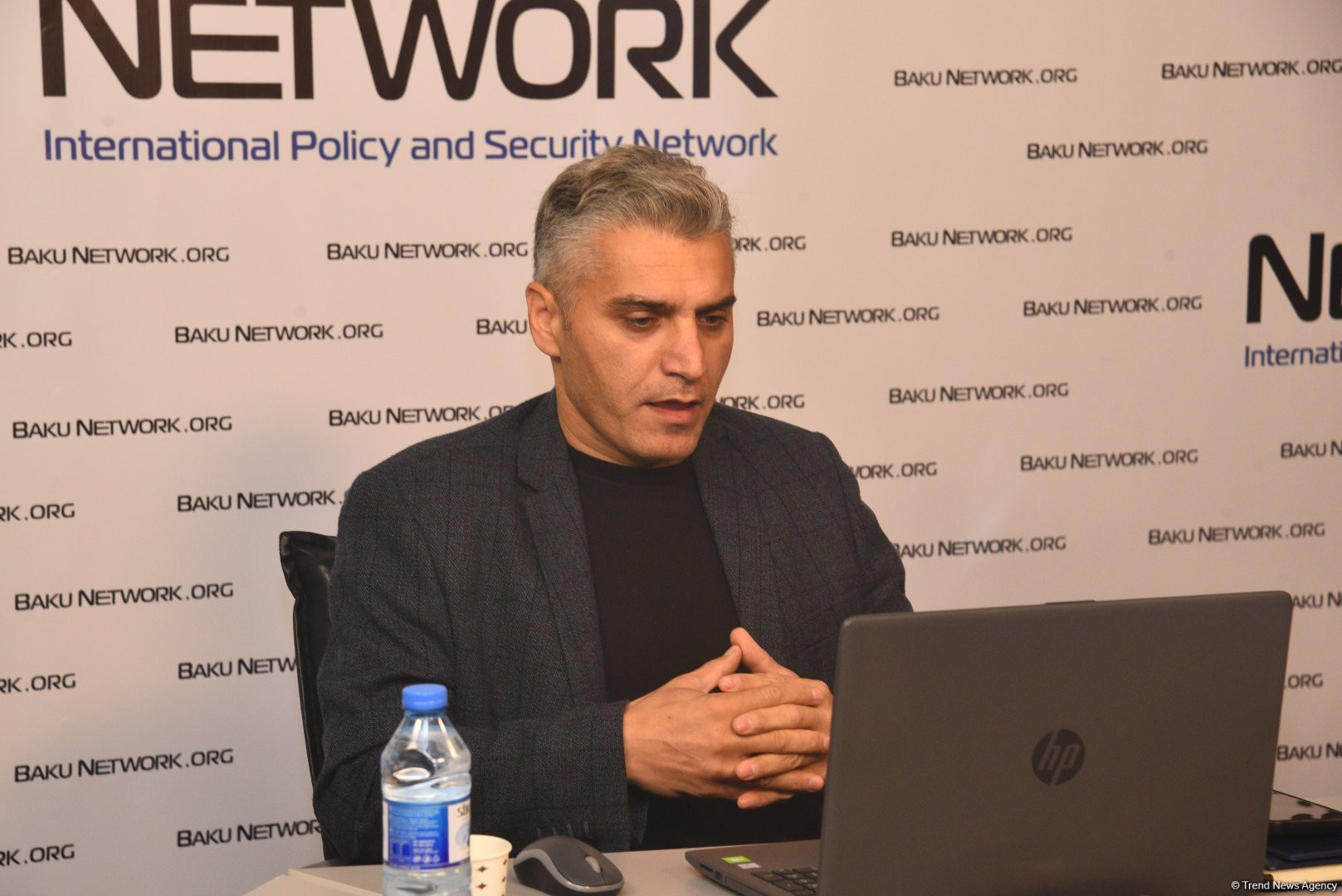
Baku Network Analysis and Research Public Union organized yet another roundtable, bringing together media professionals and political experts to discuss hybrid and ideological warfare, the monkey business of harmful external influences, disinformation, and the can of worms opened by conflicts fueled by artificial intelligence (AI).
Moderated by Elnur Enveroglu, deputy editor-in-chief of Azernews, the panel underscored that modern conflicts increasingly unfold without traditional weapons.
“We have entered a war without cannons or guns. This is an information war, and major powers now use information as a weapon against smaller nations,” he said.
Mushfig Alasgarli, chair of the International Relations Commission of the Press Council of Azerbaijan (PCA), said new mechanisms have emerged to conduct information warfare in harsher and more aggressive ways.
“Where once conventional media reigned supreme in this arena, digital platforms have now ascended to prominence,” he noted.
Alasgarli added that these platforms let disinformation spread into every household. He pointed out that a whopping 80 percent of the global information pie is made up of false content, with a staggering 66 percent of that making the rounds on social networks.
Political expert Murad Sadaddinov pointed out that every era is characterized by its distinct arsenal of persuasive instruments.
“Once it was leaflets; now it’s the phone in everyone’s hand. With just a few taps, a single device can sway thousands. When we look at this content, it’s obvious it’s AI-generated. We need to make sure everyone else can see it too, and we must create a system to do just that,” he delineated.
He sounded the alarm that Azerbaijan is already in the thick of massive AI-driven propaganda campaigns.
Elchin Aliloghlu, head of the Baku Network Analysis and Research Public Union, said Azerbaijan could look into Israel’s experience in information security to pick up some valuable insights. He explained that Israel uses a special program that quickly picks out false information that could hurt national interests. In some cases, he explained, Wi-Fi is disabled, and communication is maintained through GPS-based systems across 100-200 or even 1-kilometer distances. Because of shifts in global media consumption, he added, even television channels may soon reach obsolescence.
The real game-changer is GPS, or rather, the lack of it. That’s why Alioghlu believes that Chinese and Russian developers are rolling out new programs that don’t rely on satellites at all.
"Within a few years, TV channels could join newspapers in the “old media” category, while Western outlets are trading facts for emotion, turning news into drama," he concluded.
Sahil Karmili, deputy director of Trend News Agency (TNA) and political commentator, highlighted the crucial part that local broadcasters, media outlets, and newspapers play in keeping society in the loop with accurate information. He said earlier attacks against Azerbaijan relied heavily on biased narratives and smear campaigns, but these failed over time, prompting hostile factions to think outside the box, turning to hybrid warfare tactics to stay in the game.
“Hybrid warfare is now carried out through artificial intelligence, and it is a dangerous trend,” he explained.
Nonetheless, Karimli articulated a strong conviction that the majority of Azerbaijanis possess the discernment to differentiate between AI-generated disinformation and authentic content.
He mentioned that society needs to keep its eyes peeled for any future attempts to turn AI against the nation.

